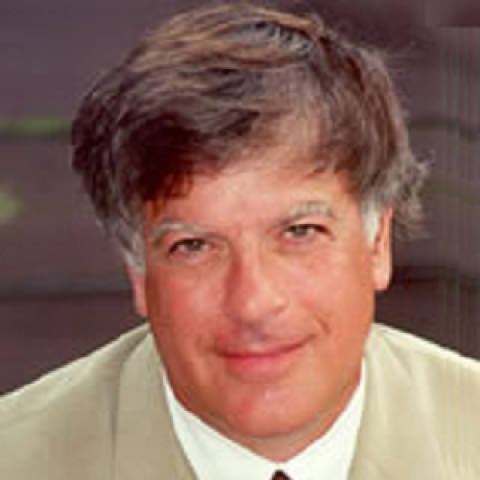In the face of Russia’s information war against the West, the U.S. needs to reject diplomatic restraint and speak openly about the Putin regime’s use of terror against its own people. When we acquiesce in the regime’s crimes, we provide cover for Russian disinformation as a whole.
There are new developments in the case of the murder of opposition leader Boris Nemtsov, the 2004 Beslan school massacre, and the bombing last spring of the St. Petersburg metro, in which 16 persons were killed.
Nemtsov was assassinated just before midnight on February 27, 2015, as he walked across the Bolshoi Moskvaretsky Bridge next to the Kremlin. On June 29, 2017, five Chechens were convicted of the murder. According to the prosecution, the accused acted on their own initiative. The evidence, however, indicates that the defendants were not guilty and the murder was organized by the regime.
In the recent U.S. indictment of 13 Russian trolls, the trolls are identified as working for the “Internet Research Agency,” supported by Yevgeny Prigozhin, a close associate of President Putin. This is the organization that, within 24 hours, began a disinformation campaign around the murder, propagating the idea that Nemtsov was killed by members of the opposition trying to discredit the regime.
On February 28, 2012, Putin stated on Russian television that he had information that members of the opposition were planning to murder one of their leaders and blame it on the authorities. It was this version of events that was immediately put out by Putin-linked trolls after Nemtsov was killed. When Zaurbek Sadakhanov, the lawyer for one of the accused Chechens, asked the court for permission to interrogate Putin, his life was threatened and he was beaten on the street and forced to flee Russia.
The likelihood that the regime ordered the murder of Nemtsov is also strengthened by the fact that the accused trigger man — Zaur Dadaev, a former officer of the internal troops based in Chechnya — has a strong alibi. The videotape from the seventh entryway at 3 Veernaya Street, where Dadaev lived, shows that he entered the building at 4:03 p.m. on February 27 and left again at 12:56 a.m. February 28. Nemtsov was shot at 11:31 p.m. on February 27.
Another crime that demands the full attention of the U.S. is the assault in 2004 by Russian special forces on a school in Beslan that had been seized by terrorists, in which 318 hostages, including 186 children, were killed.
The Russian slaughter of the hostages was all but ignored in the West, but 409 former hostages and family members brought suit against the Russian government in the European Court of Human Rights (ECHR). On April 13, 2017, the court ruled that the Russian regime had deprived the hostages of the “right to life” by ignoring precise warnings that an attack on a school was imminent and then assaulting the school with flame throwers and grenade launchers in an indiscriminate bombardment. The ECHR ordered the Russia government to pay the survivors 2.955 million euros in damages.
After the court victory, obvious trolls in the Russian social media accused them of “trying to make money on the bodies of their children.” In fact, the survivors were defending a principle that is critical to the West: that the lives of ordinary citizens are not expendable. No civilized country would bomb a school packed with defenseless hostages, including hundreds of children. This is why the ECHR decision needs to be emphasized by the U.S.
Finally, and perhaps most pertinent in the present atmosphere, the U.S. needs to examine the April 3, 2017, terrorist attack on the St. Petersburg metro.
Putin suggested that the St. Petersburg bombing was carried out by the CIA. In reality, there is strong evidence the attack was carried out by the Putin regime itself.
Immediately after the attack, the Russian media reported two explosions, citing the Emergency Situations Ministry and the investigative committee as sources. But 30 minutes later, they started reporting only one explosion — and an unexploded bomb at a second St. Petersburg metro station. This immediately raised the question of how the authorities knew about the existence of the second bomb.
The authorities explained the initial report by saying that a trail of smoke from the blast was seen by passengers at one station and the devastated subway car at the next station. But eyewitnesses told TV Rain that the blast occurred as the train approached the Technical Institute station, so the smoke could not have been detected at the Sennaya Square station, almost two kilometers away.
In the wake of acts of terror by the Putin regime, there are always absurd explanations intended to confuse Western opinion. Our response is to repeat the official explanation and then change the subject. So when Russia launches an information attack on the West, it does so with the credibility of a legitimate regime. But the Putin regime’s true nature can be demonstrated, and the Russian information offensive can be blunted, with the help of nothing more complicated than a commitment to establishing the truth in important Russian cases. Russian civil society is so weakened by fear that it is unable to raise basic human-rights issues. The responsibility therefore rests with the U.S.
In the aftermath of the St. Petersburg metro bombing, Putin said that mankind has been manipulated to become “unconscious” through the use of programming by politics and the media. In fact, it is the Putin regime that is doing the programming. The U.S. is in a position to defeat this — but only if we abandon our parochial concerns and take responsibility for a world that embraces the internal life of both Russia and the West.


















